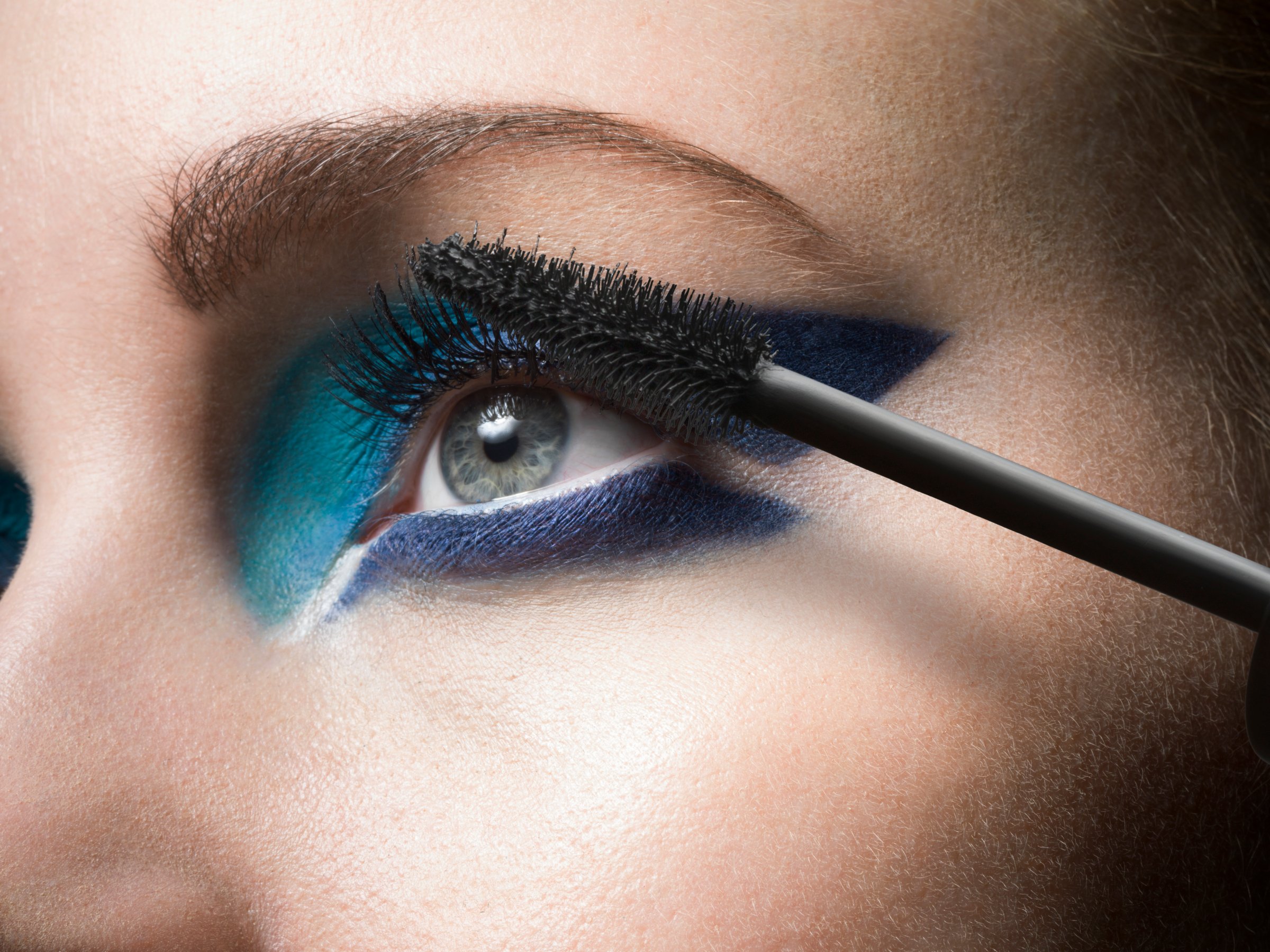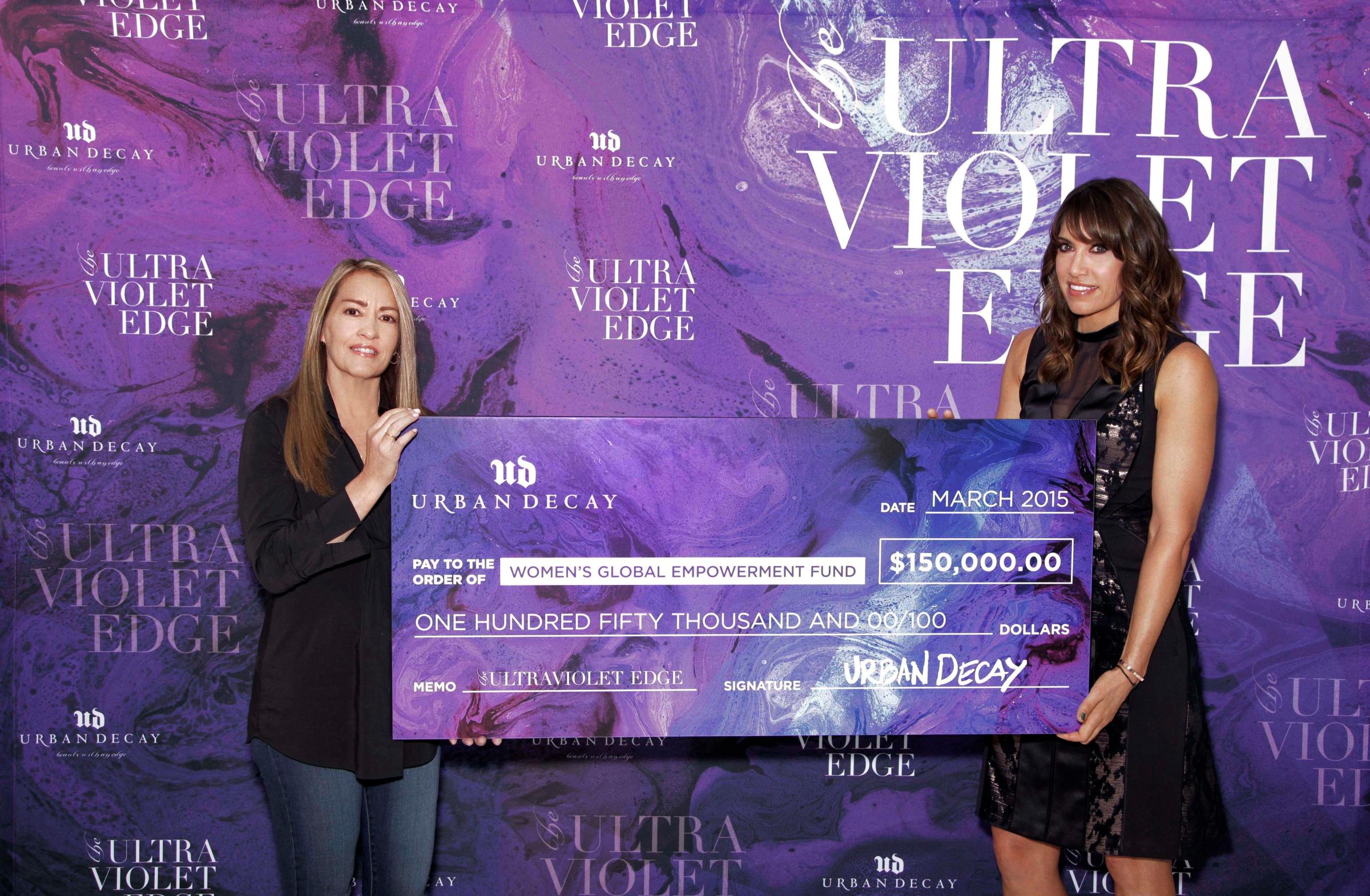
The beauty business can seem shallow or vapid. Sometimes I feel that what I do isn’t meaningful. Then I think back on how much the transformative power of makeup spoke to me as a 13-year-old girl. I spent hours recreating the faces I found in magazines, and making up looks of my own. When I was in high school, my parish priest told me I was hiding behind a mask of makeup. I remember thinking, “You don’t get it. I’m telling you something about myself. I’m showing you who I am.”
Growing up, I always wondered why women had to take a backseat to men. It was the little things, and later, some big things. Why couldn’t I be an altar server at church? Why did the boys get to take wood shop, while I had to type or sew? Why did my dad complain about buying me a new pair of high tops for my varsity basketball games, while my younger brother got the best pair of soccer cleats money could buy? I was accepted to Northwestern University and offered a scholarship, but was told not to go by my father, who thought I wouldn’t use my degree. He said I “would just get married and have kids.” Was I angry? Hell yes.
Gloria Steinem became my heroine. When I was invited to serve alongside her on the board of Ms. magazine in 1999, I jumped at the chance to learn from my idol. Working behind the scenes at Ms. exposed me to the broad spectrum of women’s
issues. I discovered it wasn’t just about women fighting for equal pay, but also about extending access to education, ending female genital mutilation and domestic violence and supporting visionary entrepreneurs.
My mother was horrified when I proclaimed myself a feminist — she thought I should become a nun. I couldn’t understand why wanting equal rights was a bad thing. I certainly wasn’t going to volunteer to be a second-class citizen — I was going to push back. And I didn’t think that being a powerful woman was mutually exclusive with loving makeup and appreciating the effect that beauty can have on people. All along, I thought every other woman must feel the same way, until I was asked to speak at a conference for women in the snowboarding industry in 2001. I asked the women in the audience, all of whom were badass shredders, to raise a hand if they were feminists. Virtually no hands went up. Then I asked if they thought they should be paid the same as their male counterparts, and almost every hand shot up. I realized I had a lot of work to do.

I have always wanted Urban Decay to be a brand that empowers the women and men who use our products, fosters self-expression and defies defined notions or standards of beauty. But we still shoot pictures of beautiful, aspirational models. We still create desire for cosmetics. Like all beauty brands, we engage in a push-pull with women’s self-esteem. On the one hand, the products we make help women to look and feel their best. On the other, we foster the notion that without outward beauty, people may not notice inner beauty.
In the beginning days of Urban Decay, we started our journey toward supporting women by donating empty lipstick cases to domestic violence shelters. They used the empty tubes to hide little pieces of paper with information on resources, so women could carry help with them in secret. In 2015, I made our efforts more official with the launch of the Ultraviolet Edge, our fundraising effort for women’s empowerment. I wanted to start this branch of the brand for so many reasons, including my internal conflict about the selling of beauty. It was time to support my sisters and help bring attention to broad and far-reaching women’s causes. I decided that we should give 100% of the price of a product to the Women’s Global Empowerment Fund in Uganda, which offers microloans to women so they can start businesses of their own.
We are starting our third year of the Ultraviolet Edge, and so far, we’ve raised $1.28 million. I’m pushing for another $1 million in 2017, and I don’t want to stop there. Because women’s issues cover a broad and complicated landscape, the UVE gets involved with a range of organizations. Today, we support women across the world, including the women in Uganda with the Women’s Global Empowerment Fund microfinance program, girls in Kenya with education through the Kakenya Center for Excellence, low-income women in New York City with legal services provided by Her Justice, victims of discrimination worldwide with Equality Now and visionary women entrepreneurs with connections and mentorship through the Circular Board. And we still support victims of domestic violence, in Orange County, Calif., through Laura’s House.
The women in Gulu, Uganda helped by the Women’s Global Empowerment Fund painted their conference room purple in our honor, which made me cry. They also painted this message on the wall: “Girls with dreams become women with vision.” Through what we are doing with the Ultraviolet Edge, I feel like my teen dreams of makeup are becoming a vision of transformation and empowerment.
Wende Zomnir is Chief Creative Officer and the founding partner of Urban Decay Cosmetics. Her global lifestyle and extensive world travel have opened her eyes to innovative approaches to beauty and the advancement of women.
More Must-Reads from TIME
- Donald Trump Is TIME's 2024 Person of the Year
- Why We Chose Trump as Person of the Year
- Is Intermittent Fasting Good or Bad for You?
- The 100 Must-Read Books of 2024
- The 20 Best Christmas TV Episodes
- Column: If Optimism Feels Ridiculous Now, Try Hope
- The Future of Climate Action Is Trade Policy
- Merle Bombardieri Is Helping People Make the Baby Decision
Contact us at letters@time.com